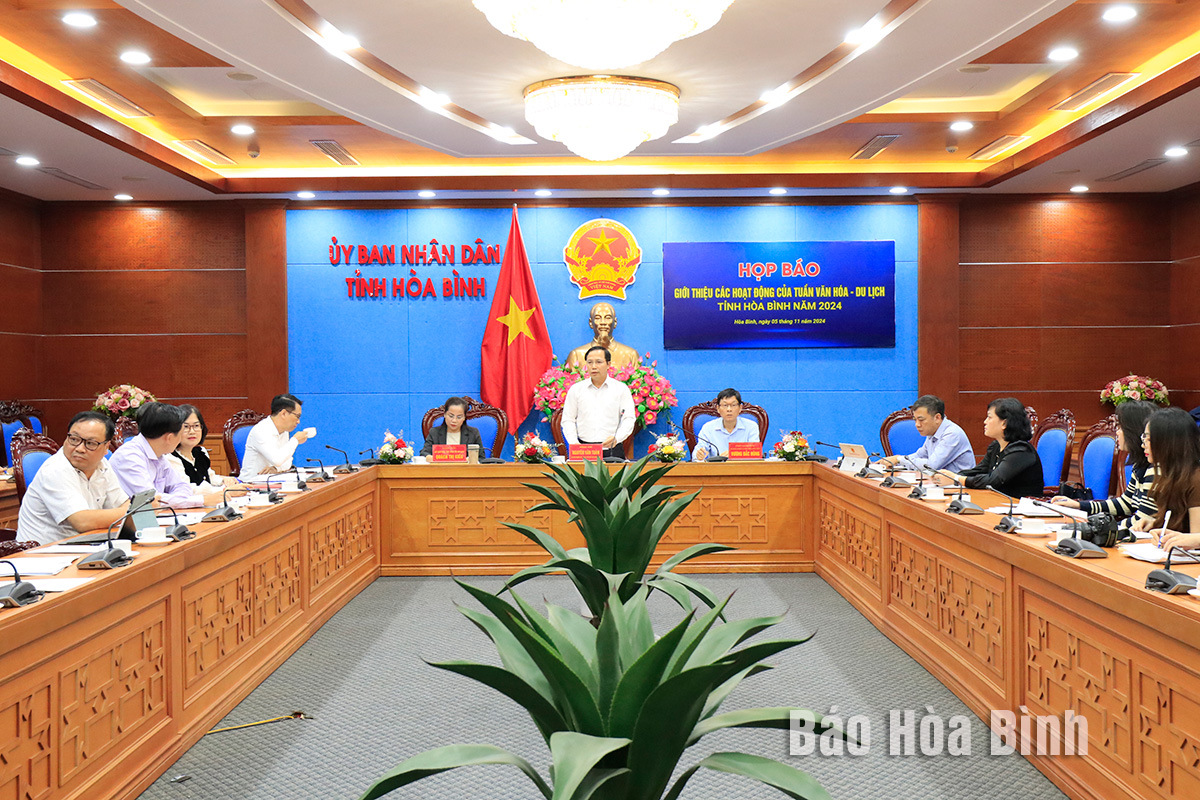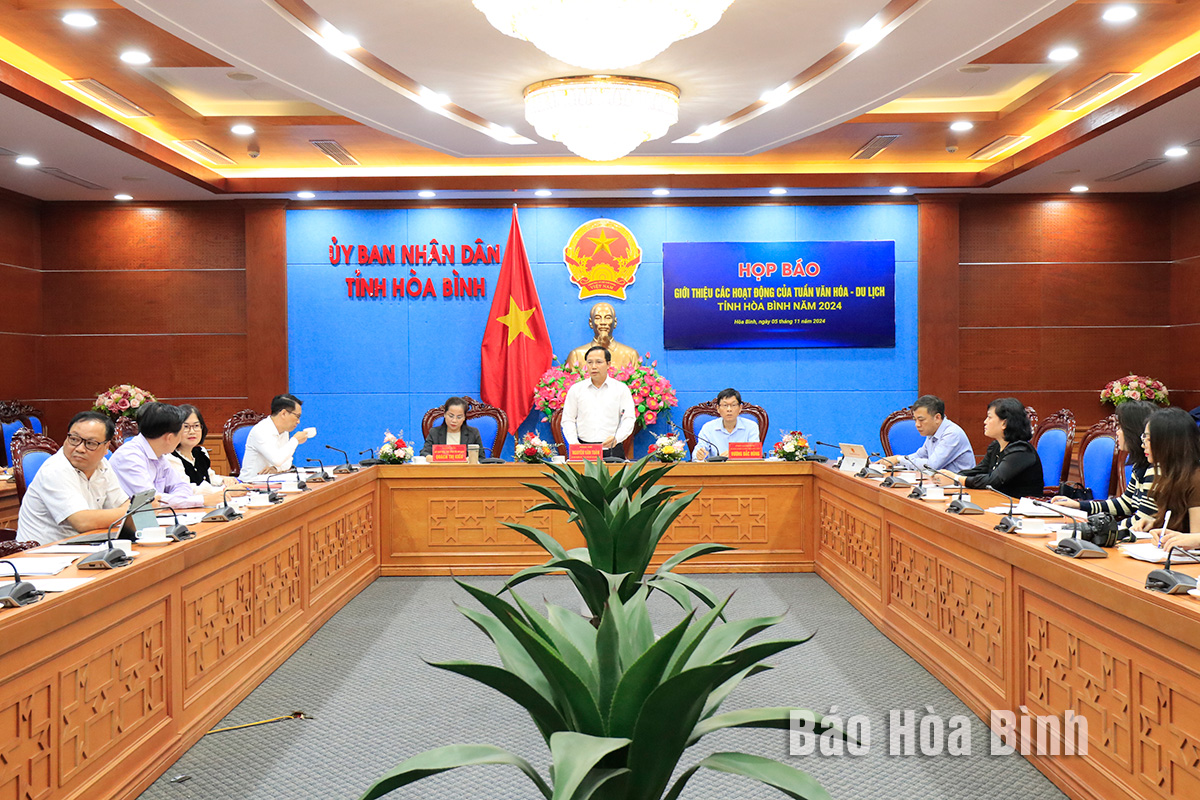
The People’s Committee of Hoa Binh province held a press conference on November 5 to announce the details of its upcoming 2024 Culture-Tourism Week.
Standing Vice Chairman of the provincial
People’s Committee Nguyen Van Toan, also head of the organisinig board of the
Culture-Tourism Week, at the press conference.
The week-long celebration, scheduled for
November 15-23 in Hoa Binh city, aims at popularising the locality’s potential,
strengths, landscapes, and cultural traits. A highlight will be a ceremony on
November 16 to receive certificates recognising Xom Trai (Trai hamlet) cave and
Vanh village stone cliff as special national archaeological sites.
It will feature a wide range of activities
including a fish worshipping ceremony, lantern floating on Da diver, an art
photo exhibition, a tourism guide contest, an ethnic costume performance
festival, an agricultural forum, the second Da river fish and shrimp festival,
and sport fishing competitions.
At a press conference, Standing Vice Chairman of
the provincial People’s Committee and head of the organising board Nguyen Van
Toan underscored the significance of the culture – tourism week and asked
competent sides to enhance coordination in the communications work for the
event.
With an increasingly vibrant and widespread emulation movement aimed at building cultured residential areas and cultured families, Yen Thuy District has been making steady progress toward improving both the material and spiritual well-being of its people, while fostering a civilized, prosperous, beautiful, and progressive community.
Once lacking recreational spaces and community facilities, Residential Group 2 in Quynh Lam Ward (Hoa Binh City) has recently received attention for the construction of a new, spacious, and fully equipped cultural house. The project followed the model of state support combined with public contributions in both labor and funding.
The "All people unite to build cultural life" movement, which has been effectively integrated with Kim Boi district’s socio-economic development goals, is fostering a lively spirit of emulation across local residential areas, hamlets, villages, public agencies, and enterprises. In addition, through the initiative, traditional cultural values are being preserved and promoted, while community solidarity and mutual support in poverty reduction and economic development are being strengthened.
A working delegation of the Hoa Binh provincial People’s Committee led by its Permanent Vice Chairman Nguyen Van Toan on June 11 inspected the progress of a project to build the Mo Muong Cultural Heritage Conservation Space linked to tourism services in Hop Phong commune, Cao Phong district.
Born and growing in the heroic land of Muong Dong, Dinh Thi Kieu Dung, a resident in Bo town of Kim Boi district, in her childhood was nurtured by the sweet lullabies of her grandmother and mother. These melodies deeply imprinted on her soul, becoming an inseparable part of her love for her ethnic group's culture. For over 20 years, this love for her hometown has driven Dung to research, collect, and pass down the cultural values of the Muong people to future generations.
In the final days of May, the Ethnic Art Troupe of Hoa Binh Province organized performances to serve the people in remote, mountainous, and particularly disadvantaged areas within the province. These were not just ordinary artistic shows, but they were the meaningful journeys aimed at spreading cultural values, enhancing the spiritual life of the people and contributing to the preservation of ethnic minority cultural identities.



